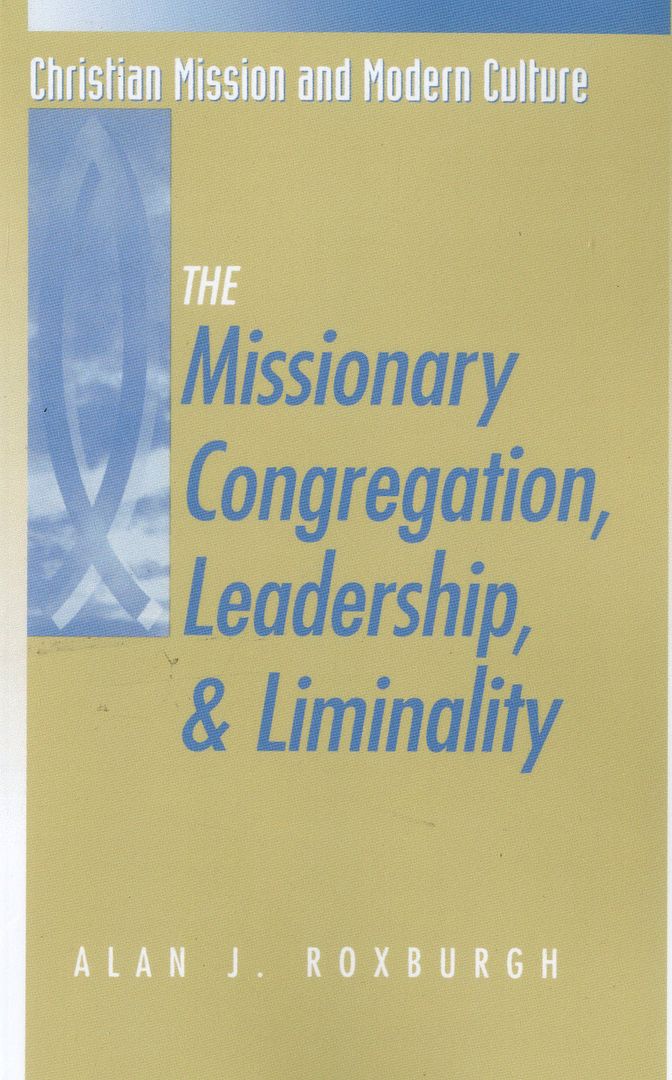Missionary Congregation Intro and Chapter 1
 Chapter 1a page 12): "Marginalization, Modernity, and Loss of Center"
Chapter 1a page 12): "Marginalization, Modernity, and Loss of Center"Oh, I love Pastor Roxburgh's saying "...we are faithfully to indwell the gospel in a culture that has disembedded itself from that tradition." To incarnate the gospel! At first I wasn't clear on what he meant by the locale of the church, but a couple of sentences later he says "social location," so that's probably what he means; I'd also point out the day of the big downtown First Church buildings and congregations in their early-to mid 20th century form is over and the real church, large, small and medium-sized, has different social, cultural and physical loci and foci these days.
Marginalization presupposes a center and a periphery. So true, and the reminder's helpful to me. The church's marginalization essentially was its "separation from the public sphere." "Christendom" had a "specific kind of theology..." Well, I am so glad the "Christendom church" no longer exists! :) In many ways, those big downtown First Churches were manifestations of a Christendom, the kind of socially established religion you were expected to "learn" if you were growing up in the mid-20th century. Pastor Roxburgh cites Christianity's shift to a "private, individualistic center."
Colin Gunton says, "Modernism…has displaced God as the focus for the unity and meaning of being…" To paraphrase Abram Joshua Heschel's words: God, the Shekhinah, is an outcast, God is in exile...we all conspire to blur all signs of God's presence.
- marginalization of the church;
- humiliation of the church
- disestablishment of the church
Another digression: in one of my classes we had an assignment to design the absolutely essential physical structure for a local church, any local church, and my solution was by far the most minimalist: I said the church needs a gathering place, which needs to include a table, a font and a place of the Word. And, I said the community needed a distinctive name...I do not care for all those "First Church" designations at all! Since these days whenever possible I like to preach from the aisle, I might say an ambo is optional, though I still appreciate its symbolic value, and some lectors are uncomfortable if they don't have something to hide behind when they're reading.
Blog note: a while ago I posted about these worship essentials but neglected to explain the ambo was more symbolic for me than it was anything else. Now I'd insist on windows open to the world (ok, in a cold or rainy climate looking out at the world which could be looking in on the gathered assembly) and I might even be OK with a cross as well.

No comments:
Post a Comment
thanks for visiting—peace and hope to all of us!